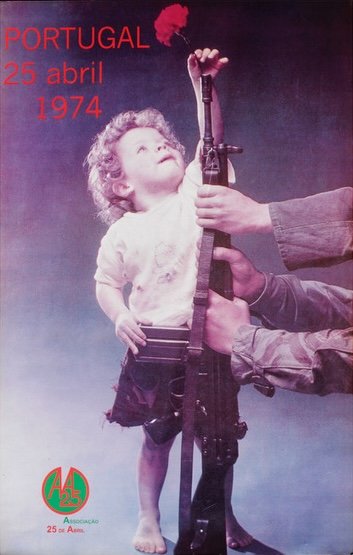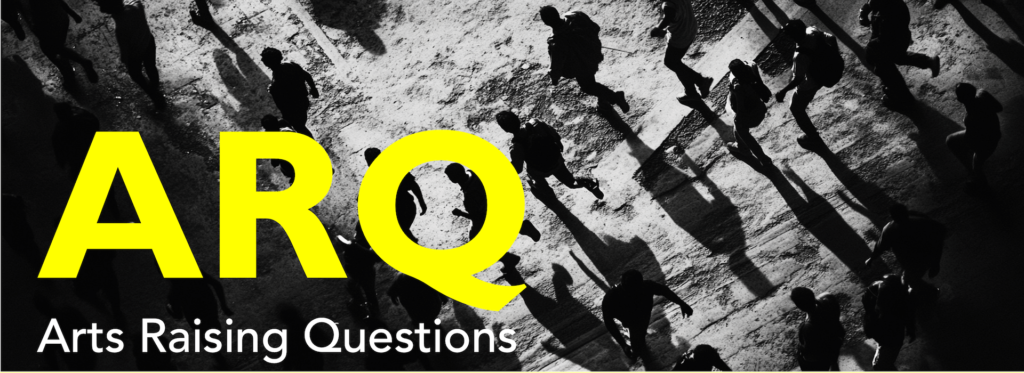
As the U.S. tyranny crumbles under its own cruelty,
a global audience watches this “great unraveling” transform into a phoenix rising – global networks preparing their neXt innovations.

Above Credit: World Ocean Day, June 8th each year, when the world celebrates progress toward saving our ocean. See also Troubled Waters: The Ocean Foundation Navigates a Policy Storm by Mark J. Spalding, President, The Ocean Foundation, published by Giacomo Abruschi, Seven Seas Media, a global platform, HQ in Italy, with readers in 174 countries.
What if we’re all actors in a new version of Macbeth?
The world is the “woods of Dunsinane” linking into global networks to tackle global challenges.
ARQ Mission. ARQ [Arts Raising Questions] is the first GAIL topic node, seeding critical thinking and informed debate about challenges we face.
Three courageous men, William Brangham of the U.S. PBS NewsHour, speaking with David Brooks (NY Times) and Jonathan Capehart (Washington Post) about the use of fear as a weapon on April 18, 2025, praised Alaskan Republican Senator Lisa Murkowski’s courage when she said, “I am afraid. Retaliation is real.” The Trump administration aims to claw back $1.1 Billion from PBS (U.S. Public Broadcasting Station) and NPR (U.S. National Public Radio); both CEOs are women.
BBC reported on how Columbia University caved in to demands, which could have triggered a domino effect and the downfall of higher education in the U.S. Attacks on individual professors, designed to make everyone afraid, were countered by landmark resistance from Harvard, instilling pride in every Harvard alum alive today. Harvard has inspired a network of universities to pivot as many university leaders now realize that a coalition of all universities supporting each other is the only way to resist the teardown of education in the United States.
Beyond threatening media and universities in the U.S., Trump is trying to close down Wikipedia, which has 30 billion page views per month, and threatening law firms with Executive Orders to negotiate “deals” to block those law firms from representing any client against him. Lawyers are fighting back.
Leaders, standing up to the terrorists within the U.S., need global support. The global message in the U.S. saga today is that coalition-building must extend beyond universities, media outlets, law firms, beyond the interests of any one sector or any one country. Many sectors in many nations must form cross-sectoral, cross-national coalitions, working together to stem the global tide of tyranny.
William Shakespeare, a master storyteller, used his stories to raise questions. He portrayed Macbeth as a very ordinary man, greedy, self-centered, and unexceptional. The brilliance of Shakespeare’s tragedy was in how his psycho-drama followed Macbeth’s transformation: he became more and more brutal as he became more and more afraid.
Today’s Macbeth is a puppet of the Deep State. The April 18, 2025 film below, like Elon Musk’s two Nazi salutes, signals that the Deep State tycoons are sure that they are invincible. The drama playing out in the U.S. shows real reason to be afraid and, as some universities, journalists, and law firms did, to cave to demands. Others are now forming coalitions to avoid caving and wisely taking precautions. Individuals are removing their last names from their LinkedIn profiles, switching to non tracking Brave and Tor browsers, moving digital assets offshore, even leaving the U.S.
The “woods of Dunsinane” is closing in as Trump’s own allies turn against him. The Supreme Court issued two orders against his immigration policies and a Trump appointee. . .
Texas Judge Strikes Down Trump’s Use of Alien Enemies Act to Deport Venezuelans
U.S. Senator Cory Booker is a global model of heroism, strength, and courage. U.S. Illinois Governor JB Pritzker called, “It’s time to fight everywhere and all at once” as the coalitions moved. Law firms that caved to Trump are losing clients, e.g. Microsoft dropped Simpson Thacher lawyers, who agreed to $125 million in pro bono work for Trump-approved causes, shifting to Jenner & Block attorneys, who are fighting in court Trump’s order targeting them. Over 500 law firms across the country joined in support of the Perkins Coie law firm appeal vs. Trump’s attempt to punish the firm for past work on voting rights lawsuits and for representing Trump’s prior political opponents. 800 firms joined in a coalition to support law firms WilmerHale and Jenner & Block fighting improper executive orders.
An El Pais article, What Trump has broken in 100 days, explained in 10 charts, concludes that Trump’s return has soured relations between the U.S. and its former allies. The EU and NATO are more strongly allied – against the U.S. The rift, evident in all countries surveyed, was highlighted in Canada, where 64% of citizens surveyed in March, 2025 saw the U.S. as an enemy.
Canadians elected Mark Carney Prime Minister on the platform that he is the “right leader to take on Trump.” After winning the election, Carney said, “Our old relationship with the United States. . . is over.” Canada will pursue closer integration with the European Union. “Canada is ready to take a leadership role in building a coalition of like-minded countries who share our values.”
The original statement of presidents of American colleges and universities denouncing Trump now has over 600 signatures. Former U.S. Secretary of Labor Robert Reich, whose clever cartoons and daily updates reach hundreds of thousands of readers, called this surge THE GREAT PUSHBACK. Bullying is not over, but global coalition-building is on the rise.
Building a Digital Noah’s Ark
an Internet Protected Area

What if one lunatic destroys an entire world?
This question was raised by Canada’s “dean of science fiction” Robert J. Sawyer, who wrote in Privacy: Who Needs It? “There’s a long-standing problem in astronomy called the Fermi Paradox, named for physicist Enrico Fermi who first proposed it in 1950. If the universe should be teeming with life, asked Fermi, then where are all the aliens? The question is even more vexing today: SETI, the search for extraterrestrial intelligence with radio telescopes, has utterly failed to turn up any sign of alien life forms. Why?
One chillingly likely possibility is that, as the ability to wreak damage on a grand scale becomes more readily available to individuals, soon enough just one malcontent, or one lunatic, will be able to destroy an entire world.
* * *
Albert Camus began to write his play Caligula in 1938 as Hitler pushed his annexation agenda. The play was published in May 1944 as Hitler expanded the war and Holocaust, sending nearly 440,000 Hungarian Jews to Auschwitz. Camus drew from Latin historian Suetonius’ account of the four-year “reign of terror” of Caligula. The terms narcissist or psychopath do not describe this psychiatric profile. “Caligulism” manifests as extreme, overt brutality – the need to hurt as many people as much as possible. What strategies can restrain this disorder?

The timing of Pope Francis’ death sent a message to the world to resist tyranny. Trump’s own post of himself as Pope was followed by the cover image
MAGA
[Messianic Antichrist Gaslighting America]

“I’m the Messiah” by Italian composer J DeCicco
Perhaps countless alien civilizations have already been wiped out by single terrorists who’ve been left alone to work unmonitored in their private laboratories.”
Douglas Rushkoff has written a series of books, including Survival of the Richest, Media Virus, Cyberia, Present Shock, Throwing Rocks at the Google Bus, and Program or Be Programmed. He is host of the Team Human podcast.
Dr. Louis Rosenberg, Founder of Unanimous AI, writes about the social and political stakes of dominance and resistance and about the agency of metaphor in trans-disciplinary inquiry. The arts go beyond criticism and protest to solve problems, innovate, and uplift.

Marina Cortês, astrophysicist at the University of Lisbon, recounts that in Portugal on April 25th, 1974, a military coup overthrew the government, ending Europe’s longest-standing dictatorship, an oppressive regime that lasted fifty years. No bullet was fired during the coup, and there were no deaths. It was called the peaceful revolution, because all military placed a carnation on their rifles. In the 50 years that followed, one emblematic photo, taken on that day in 1974 of a little boy placing a carnation on a rifle offered by a soldier, became the symbol of freedom in Portugal, raising a question:
How can we celebrate more such stories?
As if calling for global outcry and perhaps looking for a way out, on May 2, 2025 Donald Trump posted on Truth Social an A.I. generated image of himself as Pope (below), to the chagrin of 1.4 billion Catholics and the world.


LET’S TRY SOMETHING ELSE! – necessity as the mother of invention
The Battle for Democracy
unfolds in real time as people form networks to resist tyranny
American author Sinclair Lewis foresaw today’s crisis in the U.S. in his 1935 novel, It Can’t Happen Here. Silencing opposition as he dismantles the United States and disrupts our world, Trump’s beyond shock and awe campaign appears designed to instill fear. Yet, after a brief silence of fear, many courageous leaders began to speak out. Pulitzer Prize-winning journalist Laurie Garrett highlighted actions today that parallel How Hitler Dismantled Democracy in 53 Days, underscoring the urgency of this moment.
Litigation Tracker tracks the several hundred lawsuits filed against the U.S. President and DOGE. Republican Trevor Potter is leading a lawsuit vs. DOGE. When New York Attorney General Letitia James and 18 other state attorney generals took decisive action, securing a court order halting Elon Musk’s team from accessing Treasury payment systems, on grounds that there was risk of “irreparable harm” if they were granted control over sensitive bank details and financial infrastructure, immediate retaliation occurred.

SCARED RED. When taking to the streets to protest is unsafe, artists’ eyes on the world speak.
Crowdsourcing Truth
Aligning Missions and Sparking Action
With free speech at risk, many topics are taboo. ARQ [Arts Raising Questions] is an emerging network of independent thinkers—journalists, innovators, and artists across various media—raising vital questions about climate change, democracy, education, free speech, racism, sexism, and war.
1) Crowdsourcing discovers.
Singers Harry Belafonte and Paul Robeson said, “Artists are the gatekeepers of truth.” With journalists, thought leaders, scientists and artists sharing diverse perspectives, we can—like Wikipedia—co-discover shared truths.
U.S. National Public Radio (NPR) CEO Katherine Maher tweeted on Dec. 23, 2024 a message that rapidly reached 50+ Million views. Her tweet echoed late Professor Irving Janis (Yale University, later UC Berkeley), who studied how authoritarian regimes suppress debate by forcing public alignment with the “one truth” of those in power (what Orwell called the Ministry of Truth) – “groupthink.”
Nobel laureate Saul Perlmutter, in his 2024 book Third Millennium Thinking: Creating Sense in a World of Nonsense, champions critical thinking as a tool for navigating today’s chaos. Art, media, and storytelling stimulate inquiry and inspire action. Access to diverse perspectives, required for critical thinking, is blocked when people fear debate and are afraid to ask questions.
3) Questions spark action. When more than 50 NPR accounts left X, Elon Musk retaliated with “Defund NPR!”—fueling debate about kleptocracy, where government control is wielded to serve the business elite at democracy’s expense.
The crowd cheering Elon Musk at the link above bears an unsettling resemblance to the masses in Triumph of the Will, Leni Riefenstahl’s infamous 1935 Nazi propaganda film, which documented the Nazi Party’s Nuremberg rally. Elon Musk, recipient of a 2014 Lifeboat Guardian Award, has the future of that crowd in his hands.

TWO NAZI SALUTES. No smart man would give two Nazi salutes if he believed his power could be revoked.
Facing the Future
Thought Leaders on Existential Risk
Jaan Tallinn, 2012 Lifeboat Guardian Award winner, foresaw today’s grand challenges and founded the Centre for the Study of Existential Risk at Cambridge University.
Eric Klien anticipated this moment in history when he founded the Lifeboat Foundation. He’s been described as a sage, polymath and savant for recognizing several decades ago that our world would need a global network of thought leaders like the Lifeboat Foundation to navigate existential risk.
Jeff Bezos, 2018 Guardian Award Winner, CEO of Amazon.com, described by Wired as “CEO of the Internet” because Amazon Web Services (AWS) is growing faster than any other webhost, followed by Shopify and Hostinger, acknowledged our blind spot in perceiving looming threats, “For better or worse, it is really not a part of our culture to look at things defensively. We rarely say, ‘Oh my God, we’ve got to do something about that existential threat.’ Maybe one day we’ll become extinct because of that deficiency in our nature.”

The Power of Coalition-Building
From climate change to fascism hijacking artificial intelligence, from wars waged with A.I. drones and robots, the most powerful weapon against existential risk is coalition-building. And that begins with telling our stories—our dreams, missions, and the obstacles we’ve faced.
If you’re on a mission with a great idea that aligns, we want to hear your story and promote your work.
If you’ve experienced a climate change disaster, immigration struggle, or police encounter that upended your life, we want to hear problem stories too. If anonymity is necessary, you can use an A.I. avatar to protect your identity.
GAIL, hosted in Europe, working with internet privacy and security experts, is dedicated to reclaiming the internet as a tool for global problem-solving—not surveillance, censorship, or control.

Communicating Science – Calls to Action
Through science, storytelling, and media, visionaries are challenging the status quo and driving meaningful change.
Brian Backus, Co-Founder of HELLO WONDER, is introducing children to great content that inspires them to be future leaders. Jesse Dylan, Founder of Wondros, drives social responsibility through storytelling to inspire action.
Jim Al-Khalili Ph.D. Hon Dsc OBE FRS FInstP has dedicated his career to making science accessible to a broad audience, bridging the gap between complex ideas and public understanding.
Varushka Francheschi created the gripping eco-thriller “A Crack in Everything” in the spirit of The Year of Living Dangerously. The story was inspired by the unsettling reality of resource exploitation and environmental destruction, captured in these haunting words from Tom Chiarella in Esquire Magazine (January 2013): “There’s a gold rush going on right now. Man is breaking the earth, looking for natural gas. . . . It’s a mad scene, with hucksters on every side of the issue. And that’s just on the surface. You won’t believe what’s happening underground.”


Above: An Episcopal priest in Canada.
Right: ARQ [Art Raising Questions]
What does the U.S. risk by appointing a Secretary of Defense accused of sexual assault and alleged abuses to his second wife, to the point where she feared for her safety? Should an angry man have his finger on the trigger that can blow up our world?
Newton Lee won the 2024 Book of the Year competition on OnlineBookClub.org for Counterterrorism and Cybersecurity: Total Information Awareness (Third Edition 2024) published by Springer Nature. Endorsement: “I would fully recommend following the author’s steps, reaching beyond our borders, making friends outside our norm, and helping to foster world peace and a better tomorrow.” — Veteran Staff Sergeant Andrew Price, U.S. Air Force
Comments on the post: Here in the US I think the same thing. It is unimaginable what is happening here. ⚠️
What is sad is that it’s happening on our watch and we’re witnessing it with our own eyes!!
ARQ vs. Brainwashing – Forget Shorter Showers
The Australian film, Forget Shorter Showers, brilliantly exemplifies ARQ [Arts Raising Questions], exposing how public opinion is manipulated. This film’s message is that we’ve been brainwashed by the fossil fuels industry to take individual action and NOT to initiate what’s needed – organizing collective action to stop the fossil fuels industry from exacerbating climate change and to pay for restitution, e.g. the Los Angeles Fires were an urgent call for global action on climate change, not as a Los Angeles problem, a California problem, or a U.S. problem, but as a global climate change problem for which the global fossil fuels industry should commit to restitution. The film makes two compelling points before drawing a flawed conclusion.
First, the Fossil Fuels Industry has manipulated public opinion to convince us that personal lifestyle changes alone can solve climate change, with an agenda to forestall collective action against the fossil fuels industry. The aim is to convince us that if we each take shorter showers, carpool, recycle, donate to help fire victims etc. we can rest in peace, deluded into thinking that’s enough.
Second, Al Gore’s Inconvenient Truth reinforces this narrative. By emphasizing personal responsibility, and not confronting the fossil fuel agenda, Gore’s film unintentionally reinforces the illusion that we can stop with individual actions and not enforce corporate responsibility.
Third, the first two compelling points are followed by the film’s flawed conclusion that all industry and technology is destroying the planet. On the contrary, a people-centered internet and sustainable innovation can contribute to saving life on this planet.
Despite a flawed conclusion, the film shows the power of ARQ [Arts Raising Questions] to question brainwashing, to engage diverse points of view, and to spark critical thinking, challenging mainstream narratives.
Australian Filmmaker Jordan Brown uses media as a catalyst for social change, showing how raising powerful questions can overcome brainwashing and provoke constructive change.

BRAINWASHED. The authoritarian abuse of media as a tool for control to tell us what to think.
Art Impact – Inspiring Action
English (half Romani gypsy) comedian Charlie Chaplin inspires ARQ [Arts Raising Questions] to challenge the slide from democracy into dictatorship occurring today in many countries. The true impact of art lies in the action it sparks.
Charlie Chaplin’s The Great Dictator (1940) masterfully satirized Adolf Hitler at a time when the U.S. had yet to enter World War II. and was Chaplin’s most commercially successful film, proving the power of art to challenge authoritarianism. The McCarthy era of the early 1950s drove the mass hysteria of the Second Red Scare.
Lucille Ball (American) and Charlie Chaplin (British immigrant) – two of the most influential comedians of their time – were targeted. Though there was no evidence against them, the goal was clear: to silence voices that could reach big audiences, raising questions about the authoritarian agenda. Yet Chaplin’s legacy lives on. As Variety wrote in his 1977 obituary, he was “recognized as the greatest comic actor in motion picture history.” The Red Scare had a single enemy. Today’s “Orange Scare” makes everyone a potential target. If only one point of view is allowed, democracy dies. Art can resist, raise questions, and keep democracy alive.
The contrasting styles of comedian Charlie Chaplin and solo independent journalist Johnny Harris, who traveled in 2022 to Korea to document the lasting impact of the Korean War, underscore the power of diverse storytelling, explaining why Katherine Maher (CEO of the U.S. National Public Radio) drew 50+ Million views to her December 23, 2024 tweet; she called for critical thinking, not authoritarian control of truth.
A healthy media landscape doesn’t enforce “just one truth”— it amplifies diverse voices, crowdsourcing perspectives and raising vital questions.
True understanding comes not from imposed narratives but from the freedom to explore, challenge, and debate.
Above: Tom Lehrer, mathematician and musical satirist of the postwar 1950s and ’60s.
Music, like media, serves as a powerful tool. Humor raises questions. Tom Lehrer’s song, “We’ll All Go Together When We Go,” brilliantly underscored the absurdity of nuclear war, an existential threat resurfacing today.
The ARQ movement wonders, Was Margaret Mead was right or not when she penned her memorable quote below?
“Never doubt that small group of thoughtful, committed individuals can change the world. In fact, it’s the only thing that ever has.”
If Margaret Mead was right, what will those of us who want to make a difference do next?
CBS spotlighted Don’t Choose Extinction, a collaboration between the United Nations, UNDP, Jack Black, and Climate Action that garnered millions of views.
Though Don’t Choose Extinction didn’t halt the onslaught of climate change, it was one seed for the ARQ movement, suggesting that many such seeds, collected and disseminated, can have a synergistic impact.
